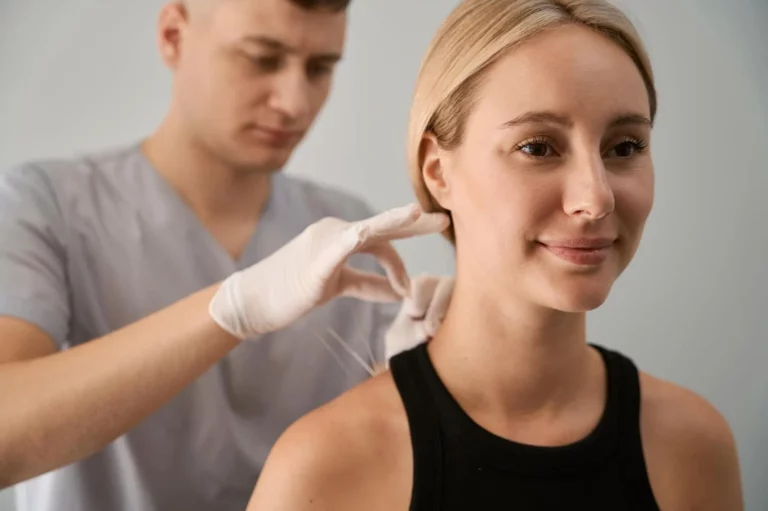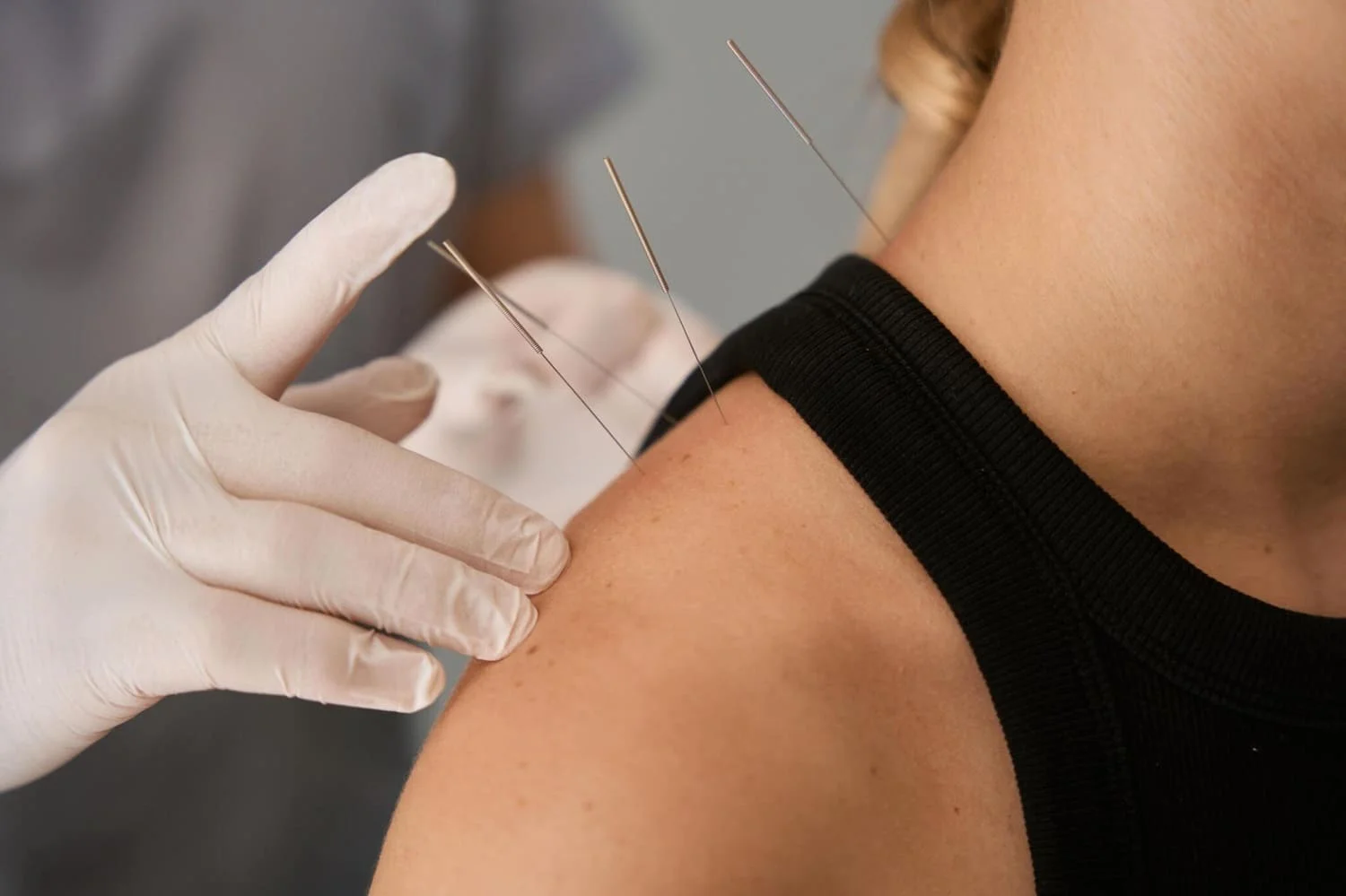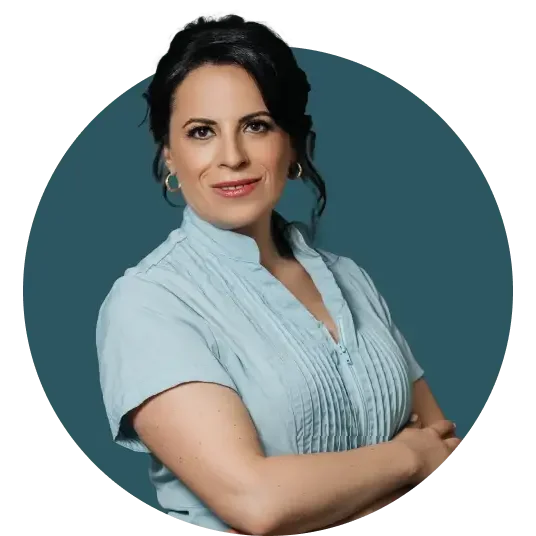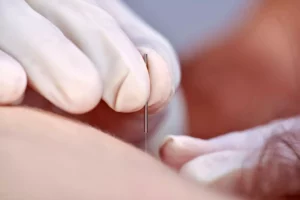In today’s article, we’ll discuss everything you need to know about acupuncture during pregnancy. Is it safe? What are the benefits or drawbacks? We aim to provide a comprehensive guide to help expectant mothers make informed decisions about this traditional practice.
Is Acupuncture Safe in Pregnancy?
Acupuncture when pregnant can be safe when done by a trained professional who specializes in treating pregnant women. Finding a qualified acupuncturist and talking with your doctor before starting any treatment is important. In many cases, acupuncture for pregnancy-related discomforts like back pain, nausea, or fatigue can be helpful without causing harm to you or your baby.
A lot of women find relief and support through acupuncture during pregnancy, it’s important to seek guidance from professionals to make sure that the mother and the baby are both safe. Consulting with your healthcare provider before acupuncture can help determine its appropriateness for you.
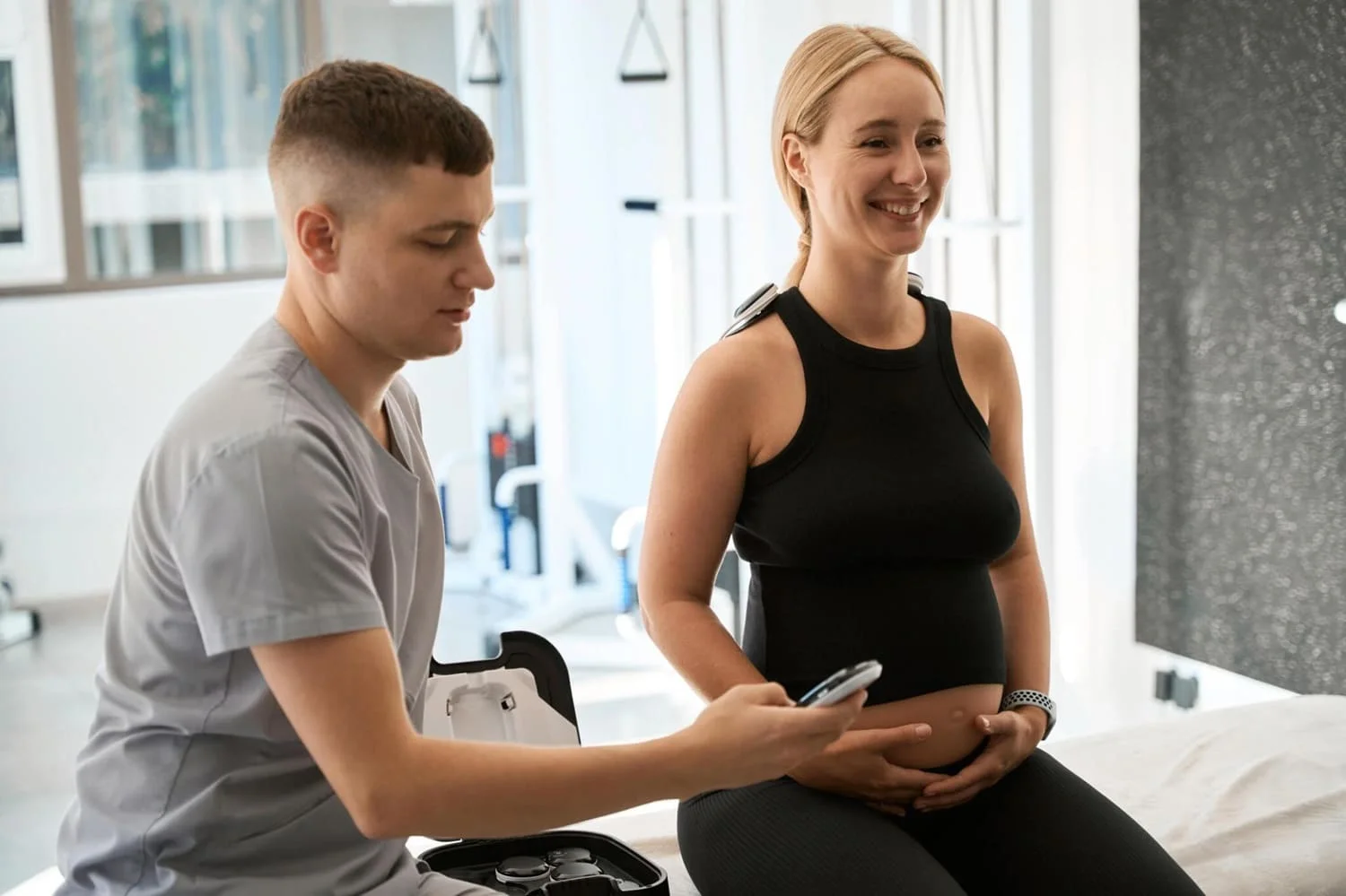
Acupuncture Points to Avoid During Pregnancy
During acupuncture while pregnant, it’s essential to avoid certain points on the body that might stimulate contractions or potentially pose risks to the pregnancy. Points around the abdomen, lower back, and inner thighs are commonly avoided as they could potentially trigger uterine contractions, particularly if you’re not near your due date. Acupuncturists specializing in pregnancy acupuncture are trained to steer clear of these points to ensure the safety of both the mother and the baby.
Additionally, points linked to hormonal regulation, like those near the ankles and wrists, are approached cautiously during pregnancy acupuncture to prevent any interference with the body’s natural hormonal balance. It’s important to communicate openly with your acupuncturist about your pregnancy to ensure the quality of the treatment by avoiding these sensitive points and providing a safe and supportive experience.
How Acupuncture Supports Hormonal Balance During Pregnancy
Acupuncture offers a natural approach to supporting hormonal balance during pregnancy, fostering a healthy environment for both mother and baby. Through gentle stimulation of points, especially those near the ankles and wrists, acupuncture can help regulate hormonal pathways that are key to reducing stress, managing mood, and stabilizing energy levels. This delicate approach aims to maintain the body’s hormonal harmony, which can ease common pregnancy symptoms like mood swings, fatigue, and nausea. Acupuncturists trained in prenatal care use specialized techniques to avoid overstimulation, focusing instead on enhancing the body’s innate ability to maintain balance. This process can lead to a calmer, more resilient system, helping expectant mothers feel more centered and supported throughout each trimester. With regular, expertly tailored sessions, acupuncture provides a gentle, non-invasive way to nurture both physical and emotional well-being during pregnancy.
Risks of Acupuncture During Pregnancy
Acupuncture pregnancy typically has few risks, but it’s important to be aware of potential complications. While it’s generally safe, there’s a slight risk of minor bleeding or bruising at the needle insertion sites. More importantly, there are specific pregnancy acupuncture points that should be avoided during pregnancy as they might stimulate contractions, which could pose a risk, especially if you’re not at full term.
If the acupuncturist isn’t aware of the pregnancy or isn’t experienced in prenatal acupuncture, there’s a higher risk of improper treatment that could potentially affect the pregnancy. Additionally, an inexperienced practitioner might inadvertently use points that could disrupt hormonal balance.
Read Also: What to Wear to Acupuncture
Benefits of Acupuncture During Pregnancy
Acupuncture in pregnancy can help ease common discomforts without any medications. It’s believed to stimulate the body’s natural pain-relieving chemicals, offering a drug-free way to manage pregnancy-related aches and nausea.
Some studies suggest acupuncture in first trimester might help reduce the severity of morning sickness and improve overall well-being. Acupuncture safe for pregnancy also considered a reliable complementary therapy when performed by a qualified practitioner. Acupuncture early pregnancy sessions can provide a relaxing experience, potentially aiding in reducing anxiety and promoting better sleep during pregnancy.
Marina Doktorman, L.Ac. from Pulse Acupuncture about Acupuncture for Pregnancy
Here’s a list of potential benefits and considerations regarding acupuncture for pregnancy:
Benefits of Acupuncture in Pregnancy:
- Nausea Relief. Some women find relief from morning sickness through acupuncture sessions.
- Pain Management. Acupuncture might help alleviate pregnancy-related discomforts like back pain or pelvic pain.
- Stress Reduction. It could aid in relaxation, reducing stress and anxiety levels during pregnancy.
- Natural Approach. Offers drug-free relief without medications that might affect the baby.
Considerations:
- Always consult with your healthcare provider before starting acupuncture or any new therapy during pregnancy.
- Make sure the acupuncturist is experienced in prenatal care and aware of your pregnancy.
Remember, individual experiences with acupuncture during pregnancy can vary, so it’s essential to prioritize safety and communication with your healthcare team as well as the acupuncture specialist. Contact our acupuncture center to get the best pregnancy acupuncture in Williamsburg, Brooklyn!
Read Also: Top 10 Benefits of Acupuncture
Acupuncture for Pregnancy – FAQ
Can You Get Acupuncture While Pregnant?
Yes, acupuncture can be safely practiced during pregnancy to help manage common discomforts such as nausea, back pain, and headaches. However, it’s important to seek treatment from a qualified acupuncturist who specializes in or is experienced with prenatal care.
Is Acupuncture Safe While Pregnant?
Yes, acupuncture is generally safe during pregnancy when performed by a qualified practitioner familiar with prenatal acupuncture. It can help alleviate various pregnancy-related symptoms, such as morning sickness, back pain, and stress.
How Often to Do Acupuncture During Pregnancy?
The frequency of acupuncture treatments during pregnancy varies based on individual needs and specific conditions being addressed. For general wellness, a common recommendation is once a month until the third trimester, then possibly once a week as the due date approaches. For specific issues like morning sickness or pain, treatments might be more frequent initially. It’s important to tailor the regimen under the guidance of a qualified acupuncturist experienced in prenatal care.
Is Acupuncture Safe in the Third Trimester?
Yes, acupuncture is generally safe in the third trimester when done by a trained prenatal acupuncturist. It can help manage late-pregnancy symptoms like back pain and swelling and prepare the body for labor. Practitioners avoid points that could stimulate early contractions, focusing instead on areas that promote comfort and balance, making it a safe, supportive option for expectant mothers nearing delivery.
-
Marina Doktorman, M.S., L.Ac., is an experienced acupuncturist who obtained her Masters of Acupuncture from the Tri-State College of Acupuncture in New York City in 2001. During her studies, she focused on Chinese Herbology, a branch of Traditional Chinese Medicine (TCM) that utilizes herbs to complement acupuncture treatments. Marina is licensed in both New York (NY) and New Jersey (NJ) and holds a Diplomate of Acupuncture from the National Certification Commission for Acupuncture and Oriental Medicine (NCCAOM), indicating her expertise in the field.


